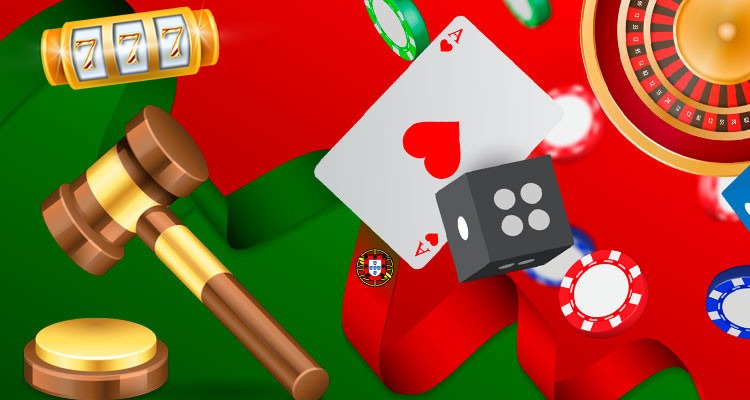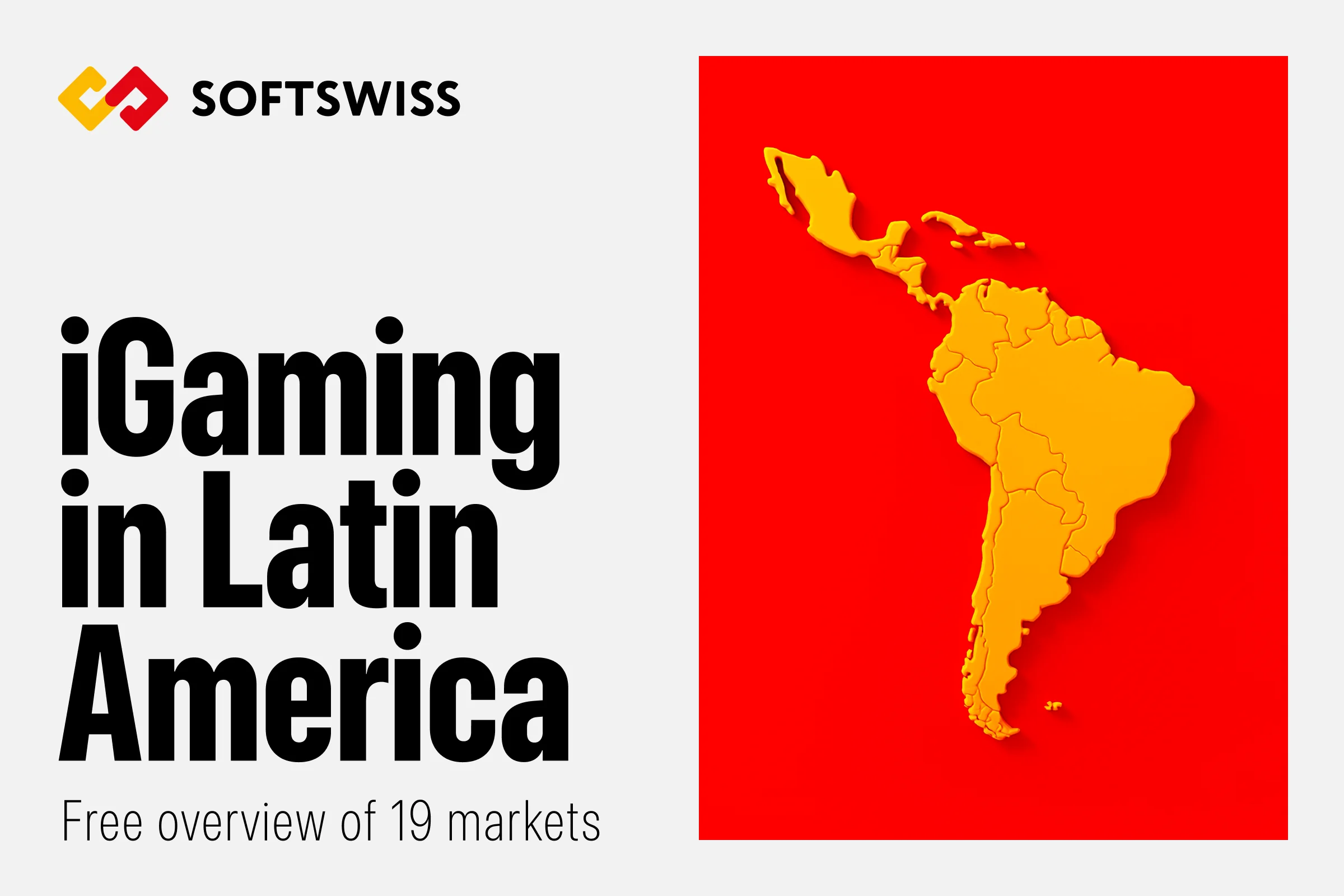Portuguese gambling laws regulate both terrestrial and digital games of chance. Although the land-based sector has suffered a decline in revenues in 2020 and 2021, analysts predict a bright future for online gambling in Portugal.
The YouGov study shows that in 2021, 31% of Portuguese adults enjoyed gambling, which is the second higher rate in the world after South Africa. With such spiked interest in games of chance, Portugal is an attractive market for many gambling operators and other investors. However, the number of licensed operators is not that high (just 15 online ops). High iGaming taxes and licensing fees kept major ops like William Hill, PKR, and Party Poker from obtaining a Portuguese gambling permit.
This article provides a deeper insight into the gambling system in Portugal. Keep reading to find out everything you need to know about the online gambling regulations, licensing, taxes, and market structure.
The history of gambling in Portugal
Portugal has a long history of gambling, which began with the launch of the National Lottery in 1783. At the time, all profits from the lottery draws were sent to charity. Almost 150 years later, in 1916, Portuguese players started to gamble at casinos when the oldest gambling venue in the country – Casino Estoril – opened its doors. The 1989 gambling law regulated the offline gambling sector.
The first online gambling product to become legal was the lottery, which was legislated in 2000. The charity organization Santa Casa da Misericórdia de Lisboa (SCML) has held a monopoly on lottery ever since. In 2011, bingo halls began to operate in Portugal legally.
Online casinos, however, were in a legal grey area up until 2015. Portugal didn’t issue licenses for remote casino services, but citizens could gamble at the offshore websites. In 2010 and 2012, two unsuccessful attempts to legalize remote games of chance were made, but both initiatives were rejected. Only six years ago, on June 28, 2015, the new legal regime of the Games and Online Gambling (RJO) came into effect. The new law finally made online casino games in Portugal legal. RJO regulated all online gambling activities.
During the COVID-19 pandemic, land-based gambling venues were closed twice: from March 15 to May 31, 2020, and from January 15 to May 3, 2021. From October 1, 2021, casinos of Portugal reopened at full capacity.
Structure of gambling in Portugal
In Portugal, the gambling market is divided into land-based and remote sectors. The gambling laws regulate the following activities:
- fixed-odds sports betting;
- pari-mutuel and fixed-odds horse race betting;
- games of chance.
SCML has a monopoly on lottery, scratch cards, keno, pari-mutuel sports betting, land-based pari-mutuel horse race betting, and other offline and online lottery games. However, local gambling authorities don’t specifically regulate social gambling, daily fantasy sports betting, wagering esports, and loot boxes. Let’s take a closer look at each gambling product.
Online gambling: casinos and sportsbooks
The Portugal online gambling laws recognize the following games of chance:
- baccarat point and Banque, including Macau baccarat;
- French Banque;
- bingo;
- blackjack 21;
- slots with one or more progressive spinning reels;
- poker tournaments;
- non-banking poker games (Omaha, Hold’em, Spanish poker);
- Caribbean stud poker;
- American and French roulette;
- crash games.
Fixed-odds sports and horse race betting are also available on legal gambling websites. Currently, fifteen entities are authorized to provide their services in Portugal, including:
- Betclic;
- bwin;
- ESCOnline;
- Pokerstars;
- Casino Portugal;
- Solverde Casino;
- Nossa Aposta;
- Placard.pt;
- Luckia;
- 888;
- Betano;
- Moosh;
- Betway;
- Bidluck;
- Bacana Play.
As of September 2021, these operators held a total of 26 licenses: 15 for games of chance and 11 for sports betting.
Land-based gambling: casinos and bingo arcades
Before the pandemic, land-based gambling was one of the most popular pastimes among the Portuguese. There are twelve casinos in ten gambling zones of Portugal:
- São Miguel Casino;
- Vilamoura Casino;
- Espinho Casino;
- Monte Gordo Casino;
- Portimão Casino;
- Lisbon Casino;
- Estoril Casino;
- Casino Da Figueira Da Foz;
- Madeira Casino;
- Troia casino;
- Póvoa De Varzim Casino;
- Casino De Chaves.
In the Autonomous Region of the Azores, there is also a slot gaming room of Ilha Terceira Four gambling ops – Estoril Sol, Amorim Turismo, Solverde, and Pestana – operate all the mentioned above casinos. Estoril Sol controls more than 60% of the venues.
Local players can play poker only at brick-and-mortar or online casinos. SRIJ also permits online poker tournaments. In the land-based casinos, Portuguese gamblers can engage in the following games:
- point and bank baccarat;
- Macao baccarat;
- French bankroll;
- craps;
- baccarat chemin de fer;
- cussec;
- non-discard poker;
- American and French roulette;
- Omaha, Hold’em, and Spanish poker;
- bingo;
- gaming machines.
The other form of terrestrial gambling is bingo halls. Ten operators (including two football clubs) run ten bingo halls across the country. And for two bingo rooms, game room “Boavista” and game room in Nazaré, the public tender is underway.
Lottery and social games
Since 2004, SCML has had a monopoly right to provide all types of lottery games. The organization is providing social games under the trademark Jogos Santa Casa. The organization uses the gambling profits for the following causes:
- prevention and treatment of addictions;
- school sports;
- combating poverty;
- victims support;
- prevention of social risks;
- field or road accidents, etc.
Gambling laws and regulations in Portugal
Three main laws currently regulate the gambling sector in Portugal:
- Law No. 422 of 1989 governs land-based gambling;
- Law No. 31 of 2011 regulates bingo halls;
- Law No. 66 of 2015 regulates the iGaming sector.
Serviço de Inspecção de Jogos (SRIJ), or Gambling Inspection Service, is the gambling regulator that governs both terrestrial and remote games of chance. SRIJ is a part of the National Tourism Authority (Turismo de Portugal). As mentioned before, the charity SCML regulates and operates lotteries and pari-mutuel horse racing and sports betting in Portugal. The Ministry of Labor, Solidarity, and Social Security overviews the SCML’s operations. More detailed info about the structure of gambling in Portugal can be found in the table below.
| Gambling product | Regulator | Gambling law |
| Land-based casinos (including poker and bingo) | SRIJ | Decree-Law No. 422/89 |
| Bingo in bingo halls | SRIJ | Decree-Law No. 31/2011 |
| Online casino, poker, bingo, fixed-odds sports betting, and horse race betting | SRIJ | Decree-Law No. 66/2015 |
| Pari-mutuel sports betting | SCML | Decree-Law No. 84/85Decree-Law No. 282/2003 |
| Land-based parimutuel horse race betting | SCML | Decree-Law No. 68/2015 |
| Lotteries (online and offline) | SCML | Decree-Law No. 40 397Decree-Law No. 282/2003 |
| Social gaming with no money prize, or prize in money’s worth | Municipality | Decree-Law No. 422/89 |
According to the SRIJ official website, the main principles of the gambling regulations in Portugal is to:
- protect minors and vulnerable groups of people from gambling harm;
- prevent gambling addiction and problem gambling behavior;
- combat and prevent scam, money laundering, and any criminal behavior;
- ensure the integrity of sport, prevent match-fixing.
The Gambling Inspection provides an option of exclusion from gambling for players with addiction.
The legal gambling age in Portugal is 18. Gambling laws in Portugal prohibit ops without an SRIJ license to offer their services in the country. In fact, the Gambling Inspection Service considers it a criminal offense. Only domains with a “.pt” ending can operate in the Portuguese iGaming market. Residents, tourists, and ex-pats, however, are not prosecuted for going to illegal gambling sites. SRIJ also orders internet service providers to block offshore casino websites. Mandatory identification is in place for both online and offline casinos.
Additionally, the gambling laws of Portugal don’t allow gambling on credit and ban all payment methods that may result in loans. In online gambling, Portugal also doesn’t allow the use of cryptocurrencies.
Licensing process
SRIJ licenses private companies to provide gambling services in the country.
There are two types of online permits:
- For remote games of chance;
- For fixed-odds betting.
Any operator that meets the following requirements can apply for an online gambling license:
- have an office in the EU or the European Economic Area (EEA);
- have a regularized status in Portugal or in the country where the operator’s headquarters are located;
- present a responsible gaming policy and bank account details;
- make a mandatory security deposit of €500k;
- present a project of a technical gambling system.
Holders of online licenses have to renew them every three years. The Portuguese online gambling license, however, comes at a cost. An applicant has to pay an €18k initial deposit (which is non-refundable), and the issuing of a new document costs €2k for each game type. Current slot games and betting services providers have to pay €2k for each offer. Expansion of the offers cost an additional €2k. To renew or extend a license, Portuguese online casino operators have to pay around €12k and online betting shops – €2k.
As for the offline gambling licenses, SRIJ grants them through a public tender. Interested ops must present a proposal to the Gambling Inspection Service. Portuguese concession for land-based gambling venues is valid for ten years, except for the bingo hall permit, which is issued for twenty years.
Tax system
There are a few types of gambling taxes in Portugal, and the exact rate depends on the type of game of chance. Brick-and-mortar casinos and pari-mutuel horse race betting ops pay a special levy, IEJ, the rate of which varies according to the location of the casino. Bingo halls and all state-run games are subject to Stamp Duty. The tax rate, however, is much higher for the private bingo rooms. Online gambling ops pay a special IEJO tax. The table below shows tax rates in the gambling market of Portugal.
| Type of gambling | Tax rate | Tax base |
| Land-based casinos | 4.5% – 40% | GGR |
| Bingo halls | 25% | Bingo prizes |
| Online games of chance | 25% | GGR (for poker and bingo fees are charged by the operator) |
| Online fixed-odds horse race betting | 25% | GGR |
| Online fixed-odds sports and horse race betting | 8% (35% if gamblers play against each other) | The amount of the bet |
| Pari-mutuel horse race betting | 15 – 30% | GGR |
| State-run games (including lottery) | 4.5%20% | The amount of the betIf the prize exceeds €5 000 |
In Portugal, players don’t pay any taxes on the prizes won from gambling.
Some criticize the Portuguese gambling regime for high tax rates. However, these taxes are average in the European Union.
Advertising rules
Unlike some European jurisdictions, Portugal doesn’t have an outright ban on all gambling ads. The local laws, however, state that advertising must be socially responsible and cannot target any vulnerable group, including minors, or encourage excessive gambling. The adverts also must focus on the entertaining aspect of games of chance, instead of portraying them as an income source. SRIJ licensees also can’t talk about granting loans in their ads.
The following promotion is prohibited in Portugal:
- ads that target or includes minors;
- advertisement that is placed within 250 meters from schools or other places frequented by minors;
- ads in locations where events for minors are held or in promotions of these events;
- ads on TV and radio between 7 am and 10 pm;
- ads on TV and radio 30 minutes before or after a program targeted at minors.
Gambling reservations in Portugal
The Gambling Inspection Service restricts games of chance to ten gambling areas (reservations). However, casinos are located in only nine of these territories.
Azores
- São Miguel Casino
- Machine Room of Ilha Terceira
Algarve
- Vilamoura Casino
- Monte Gordo Casino
- Portimão Casino
Espinho (Thorn play area)
- Espinho Casino
Estoril
- Estoril Casino
- Lisbon Casino
Figueira da Foz
- Casino Da Figueira Da Foz
Funchal
- Madeira Casino
Porto Santo
This area currently doesn’t have a casino.
Póvoa de Varzim
- Póvoa De Varzim Casino
Troia
- Troia casino
Vidago-Pedras Salgadas
- Casino De Chaves
There are also thirteen bingo halls and one bingo room in the casino of Espinho. Bingo rooms are located in the municipalities of Porto, Coimbra, Lisbon, Odivelas, Amadora, Almada, Setúbal, Amora, and Olhão.
Land-based and online gambling in Portugal is regulated on a national level. The only exception is the autonomous regions of Maderia and Azores, where the regional governments award casino concessions.
Preferences of Portugal’s gamblers
The official SRIJ statistic shows that online gambling now dominates the Portuguese market. The main reason for this is that brick-and-mortar gambling houses and bingo rooms were closed for the good part of 2020 and 2021.
However, as offline venues begin to reopen, the number of online gamblers gradually declines. Most recently, the number of players dropped 770.5k at the beginning of 2021 to 651.3k in the third quarter.
Most (61%) of the Portuguese online players are aged between 25 and 44, and 21.9% of the gamblers are from 18 to 24 years old. At the same time, 64.2% of newly registered players are under 35 years old.
As seen from the SRIJ data, online casino games have recently become more popular than remote sports betting. Slots are the most played among the local gamblers, as 77.5% of the best are placed on online gaming machines. The Portuguese also love to play French roulette, blackjack 21, and French Banque.
The situation is the same in the offline sector. At brick-and-mortar venues, the Portuguese most often played at slot machines. Apart from that, top-3 games in land-based casinos are:
- American roulette – 32.25%;
- baccarat point and Banque – 25.57%;
- blackjack 21 – 13.82%.
The Portuguese gamblers also enjoy betting on different sports events. In 2021, football was the most popular sport among the bettors and represented 82.1% of all bets. The players wagered on major tournaments like Primeira League, Champions League, La Liga, and Premier League. Tennis was the second favorite sport (13.29%) of all wagers.
Future of online gambling in Portugal
The global pandemic boosted the growth of online gambling in Portugal. Increased revenues and the number of players at online casinos and sportsbooks, in their turn, attracted investors to the Portuguese market. In 2021, the local gambling regulator has issued one new license for online games of chance. Most likely, this trend is going to continue this year.
The recent changes in the iGaming tax regime also have had a positive effect on gambling market growth. Before 2020, many operators criticized Portugal’s online gambling laws for high taxes and fees. Hopefully, amendments in the tax framework will attract more operators to Portugal.
As sports betting is widely popular in the country, experts anticipate regulation of wagering on new types of sports, including esports, in the upcoming years.
Read more: Best iGaming Aggregators















